Nigeria
The Central Bank of Nigeria( CBN) has raised its key lending rate by a higher than expected 200 basis points to 14 percent.
Read the #CBN Communique No. 108 of the Monetary Policy Committee Meeting of Monday & Tuesday, July 25 and 26, 2016 https://t.co/hXwypBn5IW
— Central Bank Nigeria (@cenbank) July 26, 2016
The bank’s governor said the decision was taken in a bid to stem the naira from its free fall aginst the dollar and tame soaring inflation.
“In summary, the MPC voted one, to increase MPR by 200 basis points from 12 percent to 14 percent. Two, retain the CRR at 22.5 percent. Three, retain liquidly ratio at 30 percent and four, retain the asymmetric window at plus 200 basis points and minus 500 basis points around the MPR”, he said.
MPR is the benchmark rate at which the CBN lends to commercial banks and plays an instrumental role in stabilising prices.
Impact of Nigeria's MPC decision on forex market https://t.co/qWJGU0rxdI
— Doreen Makumi (@mdoryns) July 26, 2016
The governor went ahead to defend the recent decision to devalue the naira in favour of a flexible foreign exchange regime but was quick to add that Africa’s largest economy is unlikely to rebound in the second quarter.
“It is unlikely that the economy rebounded in the second quarter as setbacks in the energy sector continued owing mainly to vandalism of oil installations. In addition the implementation of the 2016 budget in the second quarter remained slower than expected in the second quarter.”
Nigeria, is currently facing recession but the government remains optimistic that the country would eventually come out stronger, in view of the policies and programmes it has deployed to address the downturn.
Inflation hit an 11-year high of 16.5 percent in June as prices of food and energy jumped following the plan to ditch the naira peg to the dollar.
Currently, the naira is trading at around 370 to the dollar on the black market while the official rate is about 300 to the dollar.
The International Monetary Fund (IMF) said last week that it expected Nigeria’s economy to contract by 1.8 percent this year.
Reuters




![Is Africa’s soil healthy enough for food security? [Business Africa]](https://static.euronews.com/articles/stories/08/39/08/36/320x180_cmsv2_6c750e33-e25d-57d1-a896-b069180361f4-8390836.jpg)
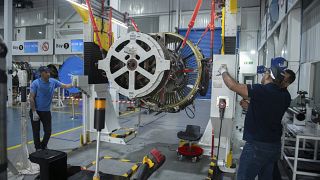
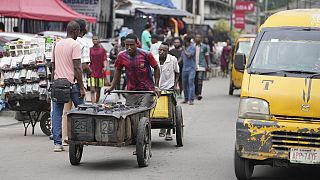
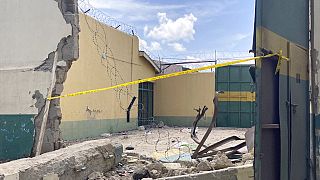
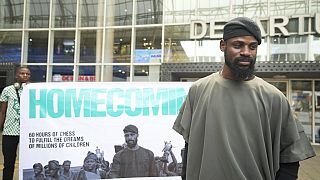
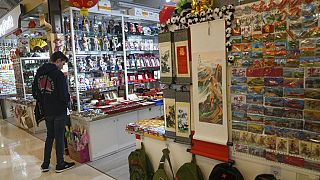

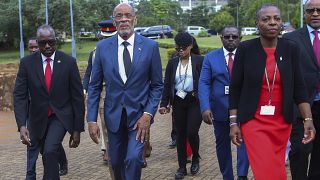
01:47
Environmental Volunteering: Activists gather in Lagos ahead of World Earth Day
00:39
Nigerian chess master plays for 60 hours in bid to set new world record
01:28
Nigeria's crude oil output goes down again in March - OPEC
01:05
A Nigerian chess champion is trying to break the world record for the longest chess marathon
01:09
Nigeria sees record inflation in March
01:02
Pics of the day: April 15, 2024